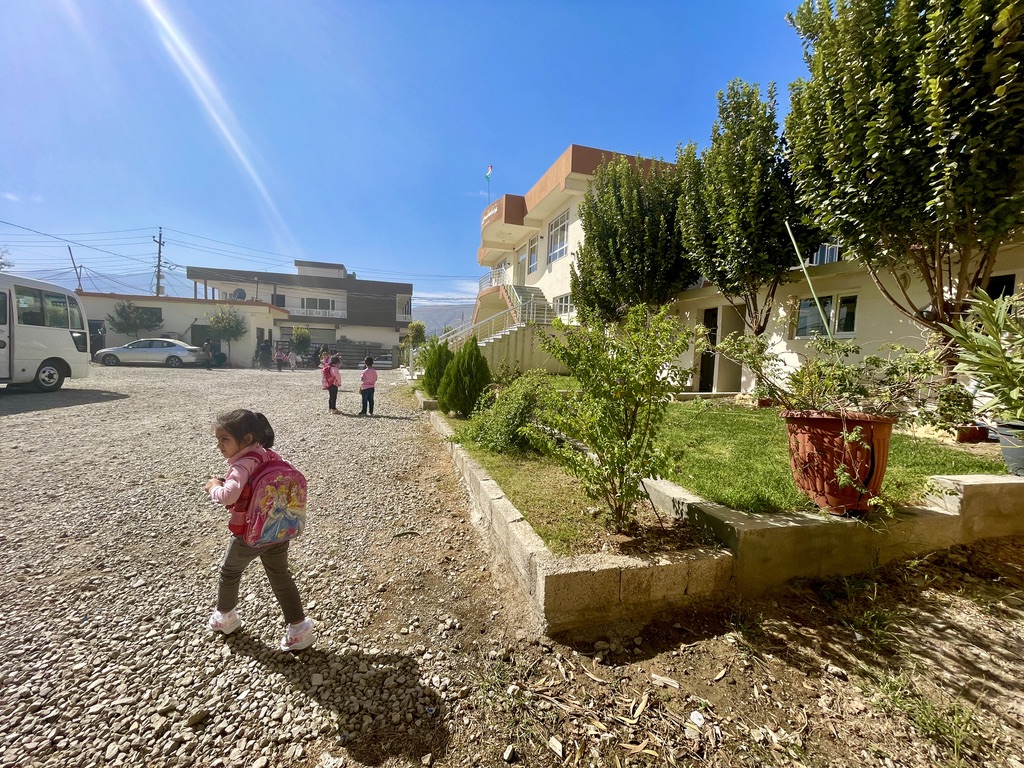by: Billy Ray | Sr. Director, Middle East
When we moved into this mountain town, the locals did not know quite what to do with us. “What is this American family doing in our country?” they asked. “Are they going to set up a Christian embassy here or something?”
After living in Soran for just a few weeks, an ordinary TV interview with the local mayor looked to turn into an international incident as it was rebroadcast in Tehran, Iran. Before I knew it, the mayor was calling me, asking me to come to his office as soon as possible. He sat me down and said, “Do you remember that TV interview that we did last week?” “Yes,” I replied. “Well, it appears that some in Iran have seen that you are now living here, right on their doorstep, and they have asked us to remove you… but, do not worry, we have your back, and you do not have to worry about anything.”
And thus began our journey in Iraqi-Kurdistan where we lived for twelve years, seeking to bring hope and healing to a troubled part of the world.
There were many obstacles along the way. The first six years, for example, felt like moving a boulder up a mountain. As we slipped into our seventh year in-country, the entire land split itself open as ISIS plowed a path of destruction across the desert, and even those in Iran began to shift in their seats as ISIS victories in battle began to mount.
During this time, everyone began turning to his or her neighbor looking for help, and because we had been forming friendships for the previous six years, they came to us too.
The first families that the mayor directed us to help were Shi’ite (Iranian) Kurds that had settled in the plains of Mosul generations before. They had escaped the slaughter with just an hour to spare…their homes ransacked and destroyed.
We started building a camp for these twenty Shit’ite families that would be more at home in Iran than Iraq, and suddenly began to notice people’s perceptions of us beginning to change. You might say the rocks literally stopped being thrown.
It is always a risk allowing a ‘foreigner’ into your town, and, increasingly, Americans abroad come with lots of extra baggage locals just do not want to have to deal with. But, occasionally, we do prove useful to some communities in need.
Like a light in the darkness that illuminates everything around it, we sought to hold out the light of the gospel in a land that is not familiar with our message.
As time has worn on, we have had the opportunity to share this light with more and more people in the country. We have seen the work of God’s Spirit change lives and create a new atmosphere of trust where friendships begin to form.
This is probably most evident in our preschool where more than 100 children gather every day for classes, and in our refugee school, which supplies a good Arabic education: the only one in the region.
When I see the children smile and remember the journey it took to be in a position to educate them, I know those years of pushing a boulder up a mountain were worth it.
It takes time to win people’s trust, and the light of the gospel is capable of doing just that. No longer afraid of us, locals call us their friends and send their children to us to care for their medical and educational needs.
That is the work of light shining in the darkness.

